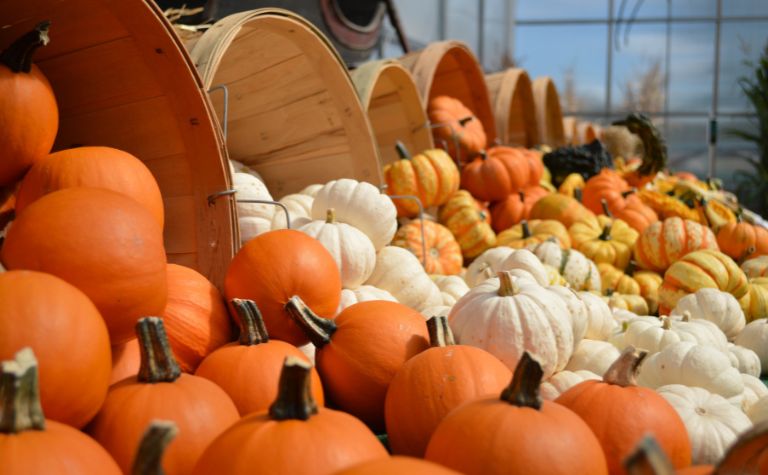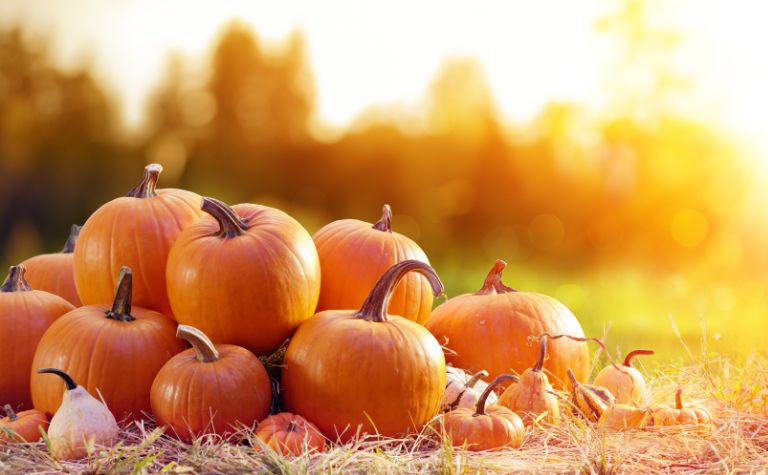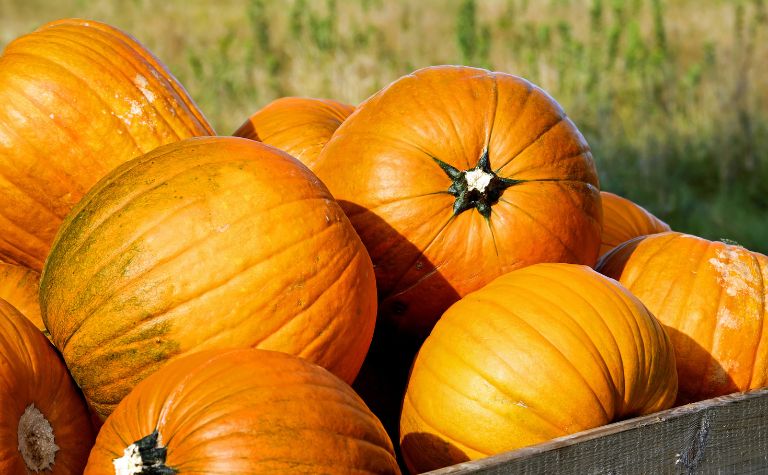Halloween is a popular celebration that occurs on October 31st each year in many Western countries. Common activities people do on Halloween include trick-or-treating to collect candy from neighbors, dressing up in costumes, and carving pumpkins into jack-o-lanterns. A common question Christians and non-Christians ask is what the Bible says about Halloween.
The Bible doesn’t directly mention Halloween, but its name and some of its traditions are rooted in the Roman Catholic Church. Some of its other practices are rooted in Celtic paganism. In Christianity, the historical significance of Halloween is that it precedes All Saints Day on November 1st.
What is the Christian origin of Halloween? What does the word actually mean? How does it relate to All Saints Day? What does the Bible say about hallows? Why don’t some Christians celebrate Halloween? What is trunk or treat? Keep reading to learn the answers to these questions and others.
Also, see What Does the Rainbow Mean in the Bible? to learn more.

What is the Christian origin of Halloween?
The Cambridge Dictionary defines “Halloween” as “the evening of October 31, when children wear special clothes and often masks to hide their faces and go from house to house asking for candy.” [1] Carving pumpkins is also a common way to anticipate the arrival of Halloween.
The word “Halloween”
The origins of the word “Halloween” explain the day’s connection to Christianity. But, to be clear, activities like trick-or-treating, dressing up in costumes, and carving pumpkins don’t have Christian origins. Instead, most historians believe they are rooted in harvest festivals in medieval Europe.
Nevertheless, “Halloween” comes from the phrase “All Hallows’ Eve.” The word “hallows” refers to holy people. It can also describe setting something apart for sacred use, like a day or a name.
Some Bible readers may be familiar with this word because it’s in the first line of the Lord’s Prayer in the KJV, “Our Father which art in heaven, Hallowed be thy name” (Matt. 6:9, emphasis added).
The meaning of All Saints Eve
Because of the reasons described above, another name for Halloween is “All Saints Eve,” which occurs before “All Saints Day” (or “All Hallows’ Day”) on November 1st. All Saints Day is celebrated in Catholic churches, but only in some Protestant churches, like some branches of Lutheranism and Methodism.
All Saints’ Day commemorates the Christians, especially saints and martyrs, who have died. Like Christmas and Easter, Christianity has traditionally held a vigil at night on the evening before (or the “eve” of) an important holy day.
Also, see What Is Zion In the Bible? to learn more.

The Bible mentions saints, but not All Saints Day
The biblical definition of a “saint” is a holy man or woman who is set apart for devotion and service to God. Some modern Bible translations use the word “saint” in their English texts.
For example, in the ESV translation, 1 Corinthians 1:2 reads, “To the church of God that is in Corinth, to those sanctified in Christ Jesus, called to be saints…” (emphasis added). The KJV, NKJV, and NASB also use the English word “saints” in the verse. The NIV and NLT translate the same Greek word, “holy people.”
The Greek word translated as “saints” or “holy people” is hagios (ἅγιος) and means set apart by or for God. In the New Testament, the word hagios doesn’t refer to a particular group of deceased believers but to all Christians. In summary, God calls all believers to be holy and set apart unto him.
According to Roman Catholicism, some Christians have been so devoted to God that they are “canonized” as models of faithfulness. According to Merriam-Webster’s Dictionary, “canonize” in this sense means “to declare (a deceased person) an officially recognized saint.” [2]
Because of this designation, Catholics commonly petition deceased saints through prayer for assistance and blessing in life.
Protestants emphasize that the Greek word, even if translated as “saints,” doesn’t refer to the church canonizing certain Christians. Instead, the description applies to all Christians. This disagreement between Catholics and Protestants intensified during the Reformation.
The Oxford Dictionary of the Christian Church explains: “The large amount of superstition surrounding the practice in the later Middle Ages had led the Bogomils and Waldensians to attack the practice, and at the Reformation it was fiercely repudiated especially by the Zwinglians and Calvinists, on the ground that it was not explicitly recommended in Scripture.” [3]
Also, see What Is the Sign of Jonah in the Bible? to learn more.

Why Don’t Some Christians Celebrate Halloween?
Some Christians abstain from celebrating Halloween because some of its traditions are rooted in paganism, which contrasts with a biblical worldview. Additionally, some stories, customs, and beliefs associated with Halloween in popular culture incorporate disturbing elements of evil, horror, and fear.
The Celtic festival, Samhain
Some historians believe certain Halloween traditions are rooted in the Celtic people of medieval Europe. For example, the Celts celebrated a festival on November 1st called “Samhain,” which signaled the end of the Fall harvest and the start of the darkness of winter.
Some Celts believed that during the darkest months of the year, the invisible veil between the realm of the living and the dead was lifted. In theory, ghosts were more active, hauntings were more frequent, and creatures like vampires and zombies interacted with the living.
While Christians aren’t opposed to eating candy, dressing up in costumes, or pumpkins, some choose to refrain from such activities on October 31st to disassociate with the Celtic traditions.
The evil associated with Halloween
Acts of evil are rarely a part of people’s Halloween celebrations in real life, but it’s a common theme in stories, legends, and movies associated with the day. Depictions of Halloween in film seldom concern churchgoing Christians or old Celtic festivals.
Instead, themes like murder, torture, fear, death, and Satanism are common. While some of these things are a part of life, what Christians aim to avoid is the glorification of them through entertainment.
Trunk or Treat
A popular alternative to Halloween among Christians is called “trunk or treat,” which also occurs on the evening of October 31st.
In most versions of the event, people park their vehicles at the church and open their trunks, some of which are decorated. When children walk by, some of whom are in costume, they say “trick or treat,” and the vehicle’s owner puts candy in their bag.
Some Christian families believe trunk or treat is safer than going door-to-door in their neighborhood asking for candy. Also, churches don’t try to scare children or incorporate themes like ghosts or murder into their celebrations. And some churches use the vent for evangelistic purposes and tell children the story of Jesus Christ.
Also, see What Is Sodomy in the Bible? to learn more.
References:
[1] “Halloween” in the Cambridge Dictionary.
[2] “Canonize” is Merriam-Webster’s Dictionary.
[3] The Oxford Dictionary of the Christian Church. p. 1227-1228.
Related Questions
What Does the Number 5 Mean in the Bible? (Symbols in Scripture)
Some people are fascinated with numerology in the Bible, especially the symbolic meaning of certain figures. There is general agreement that numbers like 3, 4, 7, and 12 have significant symbolic...
What Does the Bible Say About Astrology? (Zodiac, Horoscopes)
Astrology is a worldview that people have practiced for thousands of years. Not to be confused with astronomy, astrology is the belief that stars, planets, and other phenomena in the solar system...
